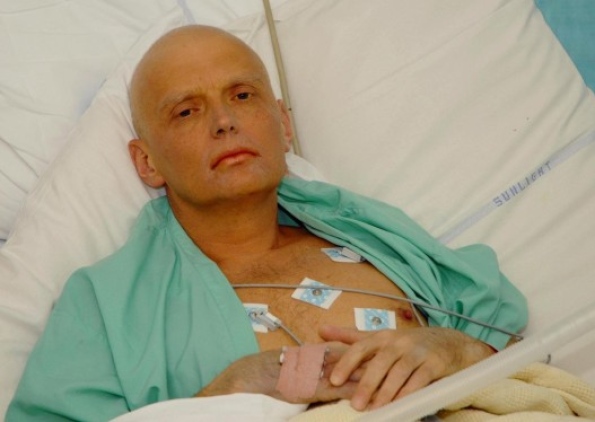
Alexander Litvinenko fell ill shortly after drinking tea during a meeting in London with former KGB contacts and died three weeks later. It was determined that he had been poisoned with polonium 210.
(Source:
PA)
Radiation sickness, known as acute
radiation syndrome (ARS), is a serious illness that occurs when the
entire body (or most of it) receives a high dose of radiation,
usually over a short period of time. Many survivors of the
Hiroshima and Nagasaki atomic bombs in the 1940s and many of the
firefighters who first responded after the Chernobyl Nuclear Power
Plant accident in 1986 became ill with ARS.
People exposed to radiation will get ARS only if:
- The radiation dose was high (doses from medical procedures such
as chest X-rays are too low to cause ARS; however, doses from
radiation therapy to treat cancer may be high enough to cause some
ARS symptoms),
- The radiation was penetrating (that is, able to reach internal
organs),
- The person's entire body, or most of it, received the dose,
and
- The radiation was received in a short time, usually within
minutes.
The first symptoms of ARS typically are nausea, vomiting, and
diarrhea. These symptoms will start within minutes to days after
the exposure, will last for minutes up to several days, and may
come and go. Then the person usually looks and feels healthy for a
short time, after which he or she will become sick again with loss
of appetite, fatigue, fever, nausea, vomiting, diarrhea, and
possibly even seizures and coma. This seriously ill stage may last
from a few hours up to several months.
People with ARS typically also have some skin damage. This
damage can start to show within a few hours after exposure and can
include swelling, itching, and redness of the skin (like a bad
sunburn). There also can be hair loss. As with the other symptoms,
the skin may heal for a short time, followed by the return of
swelling, itching, and redness days or weeks later. Complete
healing of the skin may take from several weeks up to a few years
depending on the radiation dose the person's skin received.
The chance of survival for people with ARS decreases with
increasing radiation dose. Most people who do not recover from ARS
will die within several months of exposure. The cause of death in
most cases is the destruction of the person's bone marrow, which
results in infections and internal bleeding. For the survivors, the
recovery process may last from several weeks up to 2 years.
If a radiation emergency occurs that exposes people to high
doses of radiation in a short period of time, they should
immediately seek medical care from their doctor or local
hospital.
(from the CDC Factsheet on Acute Radiation Syndrome)
Related Links